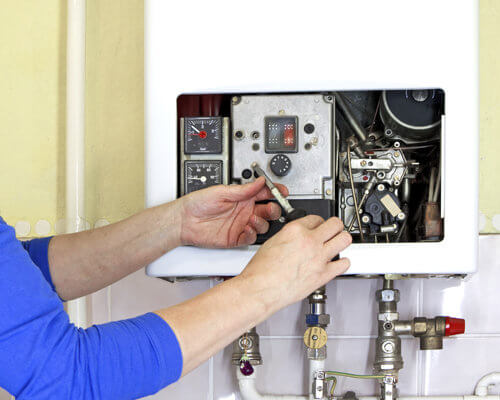How Does a Tankless Water Heater Work?
Tankless water heaters provide a high level of energy efficiency, which can reduce energy expense and water waste. If you’re considering investing in a tankless water heater, it’s important to know how they work.

Go here for our water heater services.
How a Tank Storage Water Heater Works
Most homeowners in the Oklahoma City area have a traditional tank storage water heater in their homes. These models heat several gallons of water at a time, using either electricity or gas.
The hot water is stored in a large tank until you need it. As it sits in the tank, the water cools and has to be reheated periodically. This means the heat source has to keep firing up. If the water in the tank is used up too quickly, your home will be out of hot water until more is heated up.
How a Tankless Water Heater Works
A tankless water heater, or on-demand heater, also uses electricity or gas as the heat source. Instead of heating a lot of water ahead of time, a tankless system heats water only as it’s being used.
Inside a tankless water heater there is a flow sensor that switches on the burner as cold water enters the heater. This burner warms up the heat exchanger. When you turn on a hot water faucet, the cold water flows around the heat exchanger and gets warmed up instantly. When the water leaves the heater, it’s already at the pre-set temperature.
Benefits of a Tankless Water Heater
The most noticeable benefit of installing a tankless water heater is increased energy efficiency, because water is only heated as it’s needed. There’s also no standby energy being used to keep a tank of water heated to the desired temperature.
You’ll also never run out of hot water with a tankless water heater, so you’ll be able to enjoy unlimited hot showers, even while the dishwasher and the washing machine are running.
Tankless water heaters typically last longer than tank storage models, too. Tank storage water heaters typically need to be replaced every 10-15 years, while tankless options last 20 years. Tankless versions do cost more up front, but the convenience and reduced energy usage make it a good investment for most home owners.
Bailey installs and services tank and tankless water heaters in the Yukon and Oklahoma City area. Get in touch for an estimate today. We work on all brands.
